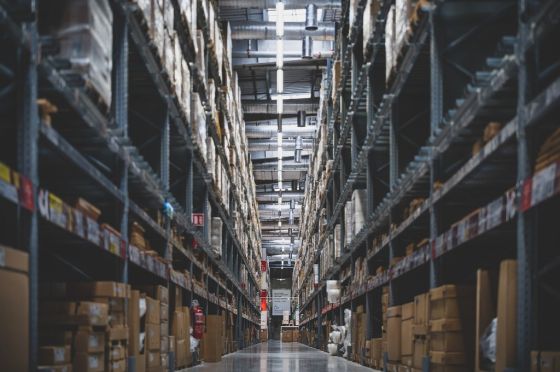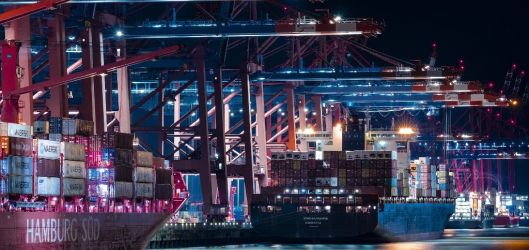
A new report released by Barclays Corporate Banking reveals that goods with a total value of £23.6bn are awaiting completion in UK manufacturers’ warehouses because of supply chain delays. This includes £9bn of steel and metals products as well as food and drink, plastic goods and £2bn of electronics which are unfinished because of supply logjams.
The ‘Chain reaction’ study focuses on manufacturing businesses with over ten employees and looks at the impact of supply chain issues. Barclays’ research shows that over seven in ten (72%) businesses are currently holding items in their warehouses awaiting completion because raw materials, ingredients or component parts have not yet been delivered from suppliers. On average, this ‘unfinished business’ is worth over £1m to each company impacted.
Products in the steel and metals sector are most severely affected, with £9bn worth of goods incomplete – equivalent to almost a fifth (19%) of the sub-sector’s annual turnover.
The trends are reflective of supply chain disruption that has challenged the manufacturing sector since the pandemic and three in five (59%) firms say they are still facing supply issues. Customer relationships are now being impacted: two thirds (65%) of manufacturers say their customers are having to wait longer for products, with 15% describing the hold-ups as ‘significant’. To offset rising costs such as energy and transportation, over half (55%) of manufacturers are planning price increases for their own products.
The industry is innovating to solve these challenges. Most commonly, businesses are increasing their storage capacity (39%). Meanwhile, a third (33%) are moving their supply chains closer to home and 32% have “friend shored” to work with suppliers in countries that have a strong trading relationship with the UK. To spread their bets, 37% of manufacturers have increased the number of different suppliers they work with.
Two thirds (66%) of companies think supply chain challenges will improve over the next six months and 86% are confident about growth next year.
Businesses have also doubled down on their commitment to sustainability despite supply chain pressures. Almost two thirds (64%) of manufacturers say carbon reduction has become an even bigger priority in the past six months, despite nearly three quarters (73%) saying their environmental goals have become less attainable.
Lee Collinson, Head of Manufacturing, Transport and Logistics for Barclays Corporate Banking, said: “The British manufacturing sector has faced a perfect storm of challenges this year, with rising costs, the war in Ukraine, labour shortages and ongoing Covid lockdowns in China hitting supply chains hard. As a result, billions of pounds worth of goods are trapped in warehouses unfinished, and this may hit industry turnover in the early part of next year.
“However, manufacturing firms have done what they do best and engineered new solutions to limit the impact of the issues they face. As a result, many businesses will enter the new year with a degree of cautious optimism and confidence.”
Other findings from the report include:
- 64% of manufacturers have faced rising costs because of the recent weakness of the pound
- Trade barriers are a concern for almost one in three manufacturers. They are a particular issue for the electronics industry (43%) and the automobile industry (41%)
- The top interventions that manufacturing firms would like to see from government are industrial energy transformation (37%) and a more aggressive energy price cap for the industry (32%)
For more information, please contact Ellie Gill Jones or Angus Reynolds at MHP Group: mhpbarclayscorporatebanking@mhpgroup.com



